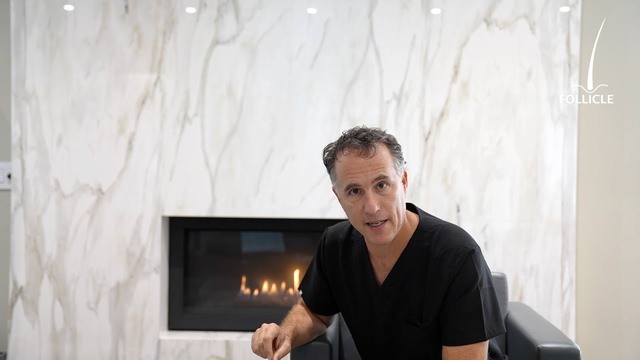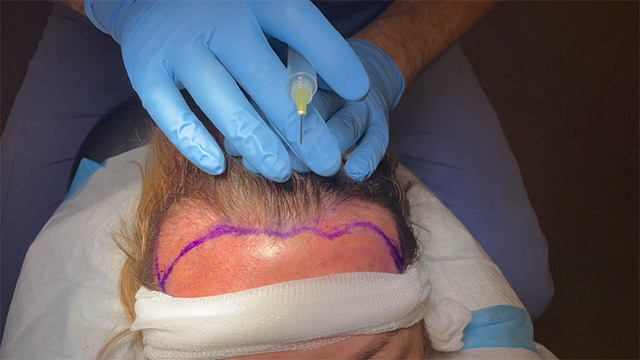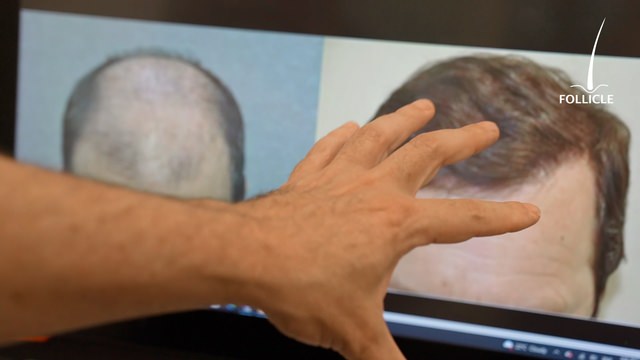

FUT – Follicular Unit Strip Surgery
Under microscopic examination, hair follicles are seen to naturally cluster in groups of 1-4 hairs. These groupings can be referred to as follicular units (FUs). At Follicle HT, we achieve natural results and typically permanent outcomes by using only individual follicular unit grafts.
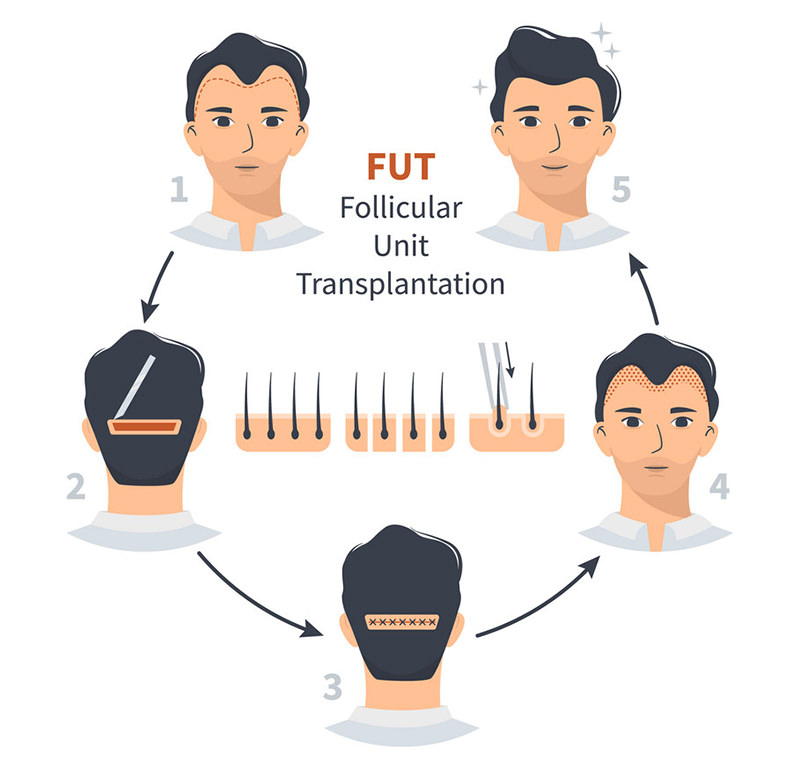
Follicular Unit Strip Surgery (FUT) is a traditional method used to obtain grafts for FUT techniques. It involves removing a strip of skin with hair from the donor site, which is then divided into follicular units for transplanting to the desired hairline. When performed by experts with surgical care, this method leaves only a fine scar line at the back of the scalp. Patient’s report that this scar line is difficult to detect unless their hair is very short. On the other hand, Follicular Unit Extraction (FUE) is a technique where individual donor follicles are extracted using a precise, motorized surgical tool.
The benefit of this method is that it circumvents the presence of a longer, fine-line scar, allowing the hair in the donor area to typically be trimmed into a fade or even shaved with minimal to no visible scarring. At Follicle HT, we use an advanced “trichophytic closure” technique that allows the surrounding hairs to grow through the scar, often making it virtually undetectable.
Ideal candidate for an FUT hair transplant
The best time to contemplate a hair transplant is when you gaze into the mirror or view a photograph of yourself, and the hairline you observe fails to align with how you perceive yourself or the image you desire to convey to others. Individuals who are visibly experiencing hair loss, are generally healthy, and do not have any underlying medical conditions that need additional investigation or treatment, are suitable for hair transplantation.
FUT is the optimal technique for those who do not wish to shave a strip of hair, usually at the back of the head. This may be the case for men or women with longer hair.
Unlike some clinics, Follicle HT possesses a team of hair transplant experts with deep expertise in both FUE and FUT techniques. Our surgeons will help you choose the most appropriate method for your situation.
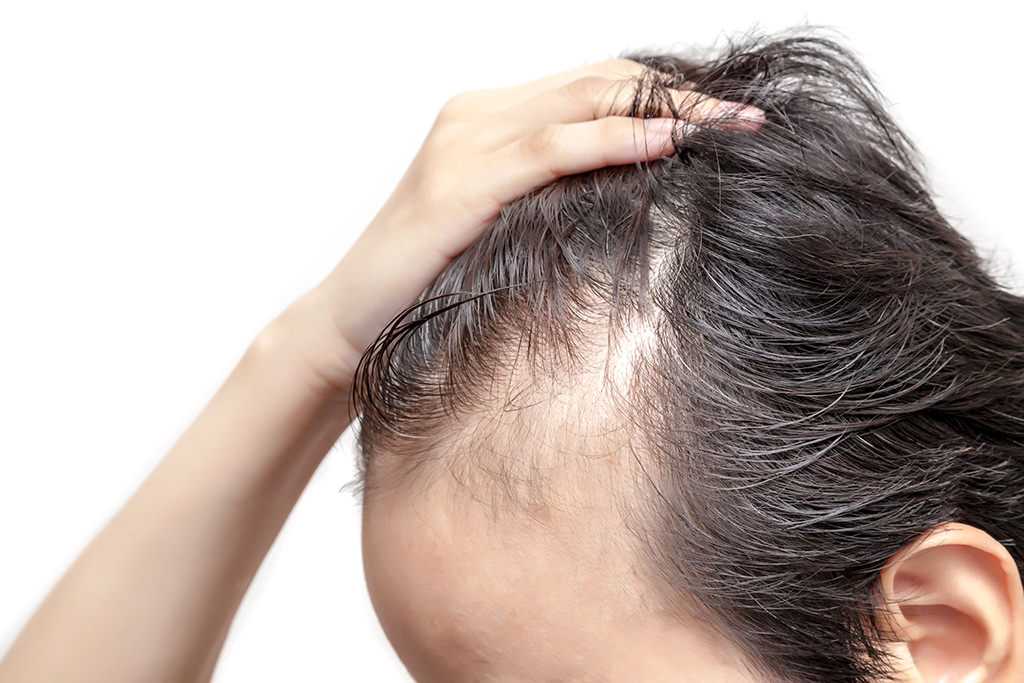
How it works
In a FUT procedure, a strip of hair-bearing scalp measuring about 1cm in height and up to 20cm or more in length is removed from the back of the scalp. The donor area is then reapproximated using a running stitch removed 7-10 days later. Because the hair above and below the donor site is not trimmed, the incision line is not visible after the procedure. At Follicle HT, we employ an advanced “trichophytic closure” technique, enabling the surrounding hairs to grow directly through the scar, often rendering it nearly invisible.
FUT Recovery Timeline
Day 1
Upon departure from the clinic, you will have a light gauze dressing covering the donor area. No dressing is applied to the grafts, but you will be instructed to maintain cleanliness and moisture in the recipient area using a gentle spray bottle. Minor swelling and discomfort may occur, and you will receive detailed instructions.
Day 2
You might feel some ongoing discomfort, swelling, and redness, but the prescribed medications can help manage these symptoms. The bandage will be removed from the donor area and you will be able to go back to non-strenuous work and continue with daily activities.
Day 3 to 5
From day 3 to 5, you might notice swelling peaking. It is common for some patients to see swelling spread to the eyelids and cheeks. This is not a reason for worry and usually subsides within a few days. During this time, you can start to gently wash your hair and following the provided hair washing guidelines.
Day 5 to 6
The swelling will become less apparent. Some mild discomfort may still be felt.
Day 7 to 10
Between days 7 and 10, you can begin washing your hair in a more typical manner, gently massaging the grafts with your fingers to help any remaining scabs to detach. You will come for a follow-up appointment and have your sutures removed. At this stage, you may start light exercise.
Day 14-21
All residual scabbing and crusting will be resolved. Most of the donor hairs will have fallen away with the scabs, but the follicles are still present and dormant in the scalp. You may start to resume more strenuous exercise and swimming.
Months 3-6
You will start to see the transplanted hairs slowly growing in. Be patient!
Month 12-18
You will see the full effect of your hair transplant procedure.
WE ARE HERE TO HELP!
We encourage you to move forward and arrange an in-person or virtual consultation with one of our surgeons. This will allow us to discuss the hair restoration treatment plan that best suits your needs.
Results
Hair follicles from the transplant will start to grow within about 2-3 months. Medical treatments like topical minoxidil (Rogaine) or injections can encourage graft growth and prevent further loss of non-transplanted hair over time. Most patients will notice a significant improvement in their hair at four to six months. The final look of the transplant may take 12-18 months to become apparent. The transplanted hair is your own and will continue to grow naturally, just like your other hairs. You can style it, use products on it, swim, and engage in sports as usual.
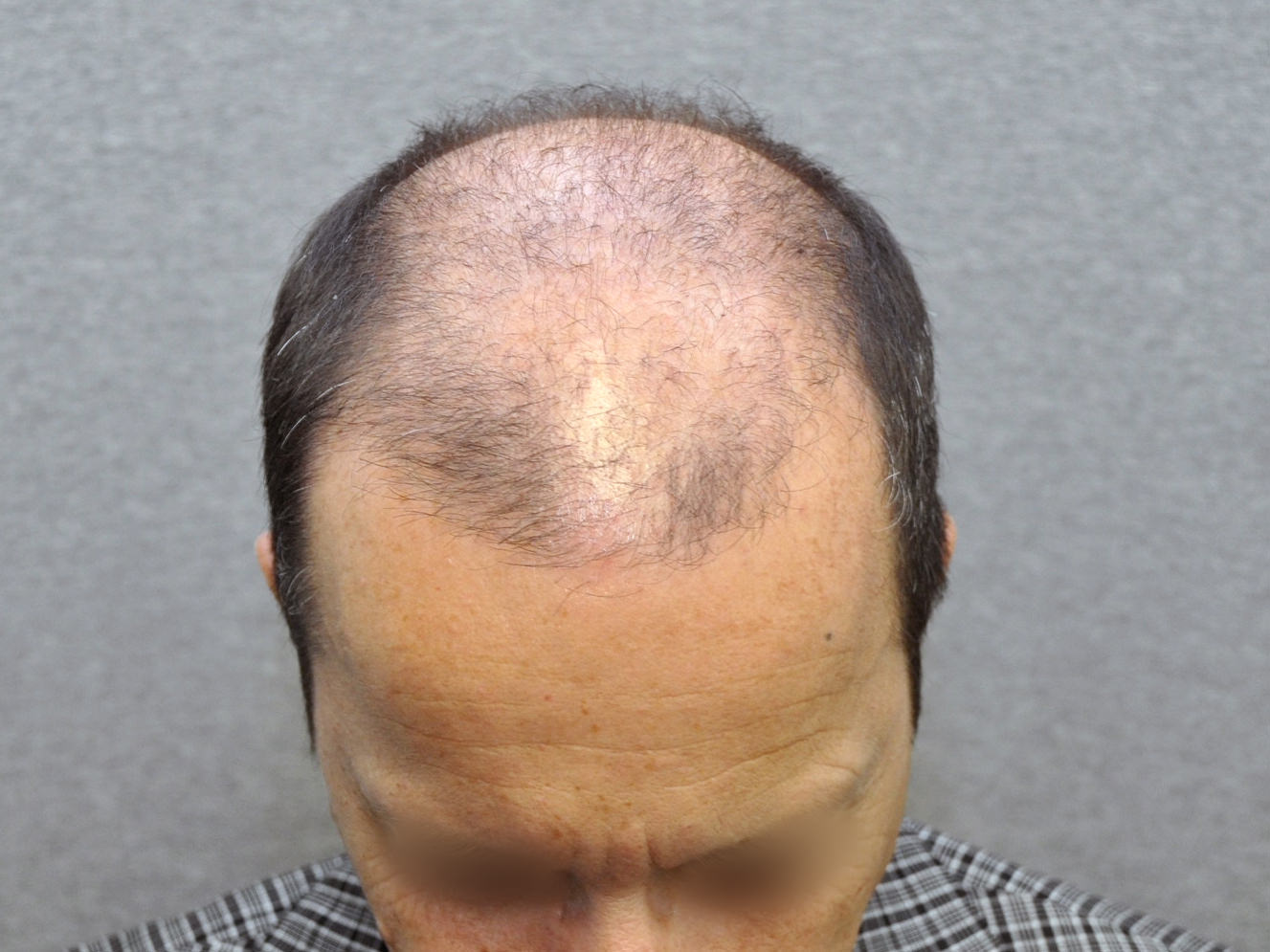
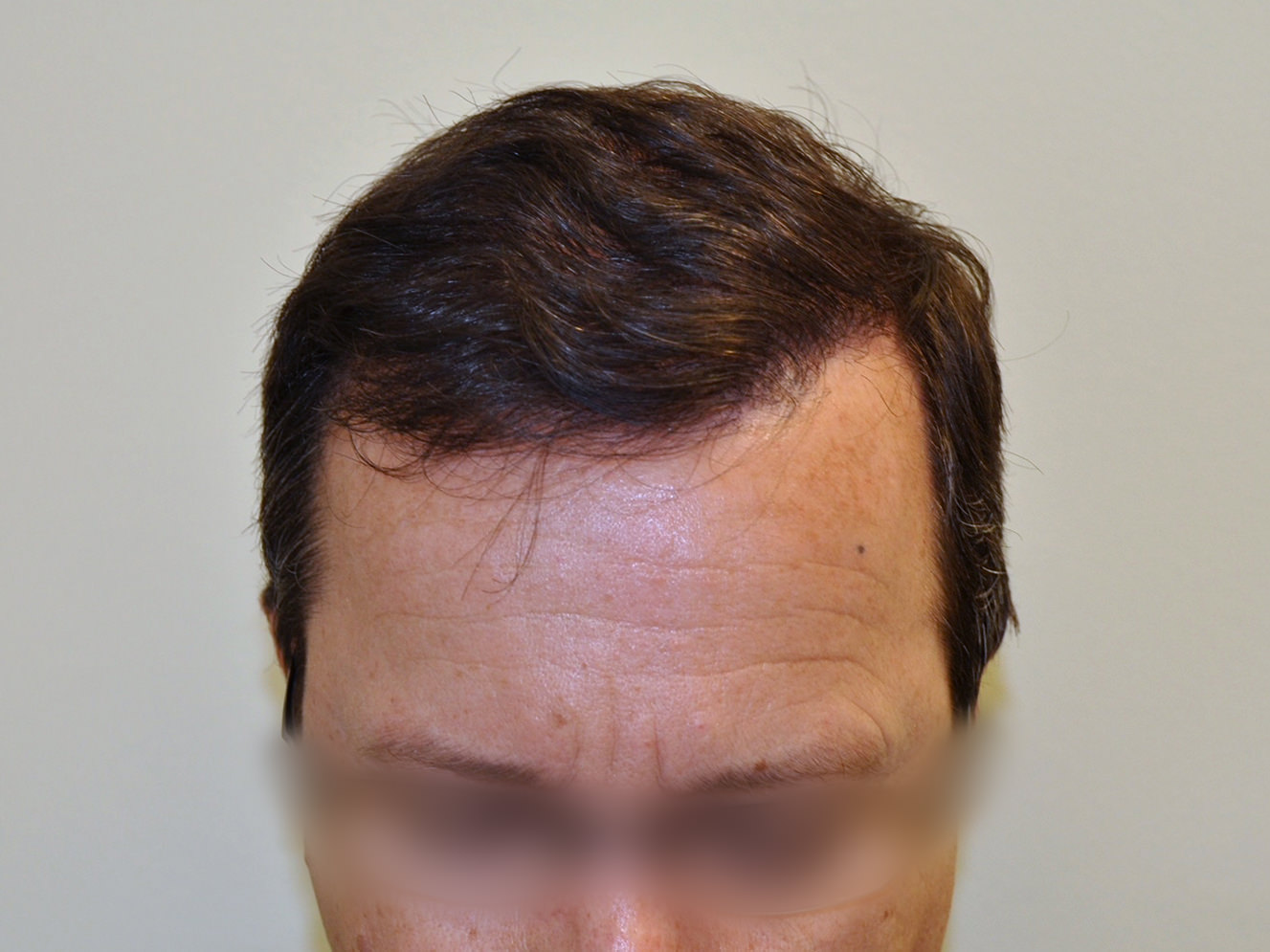
55-year-old male underwent 3600 follicular units in 2 sessions via FUT.
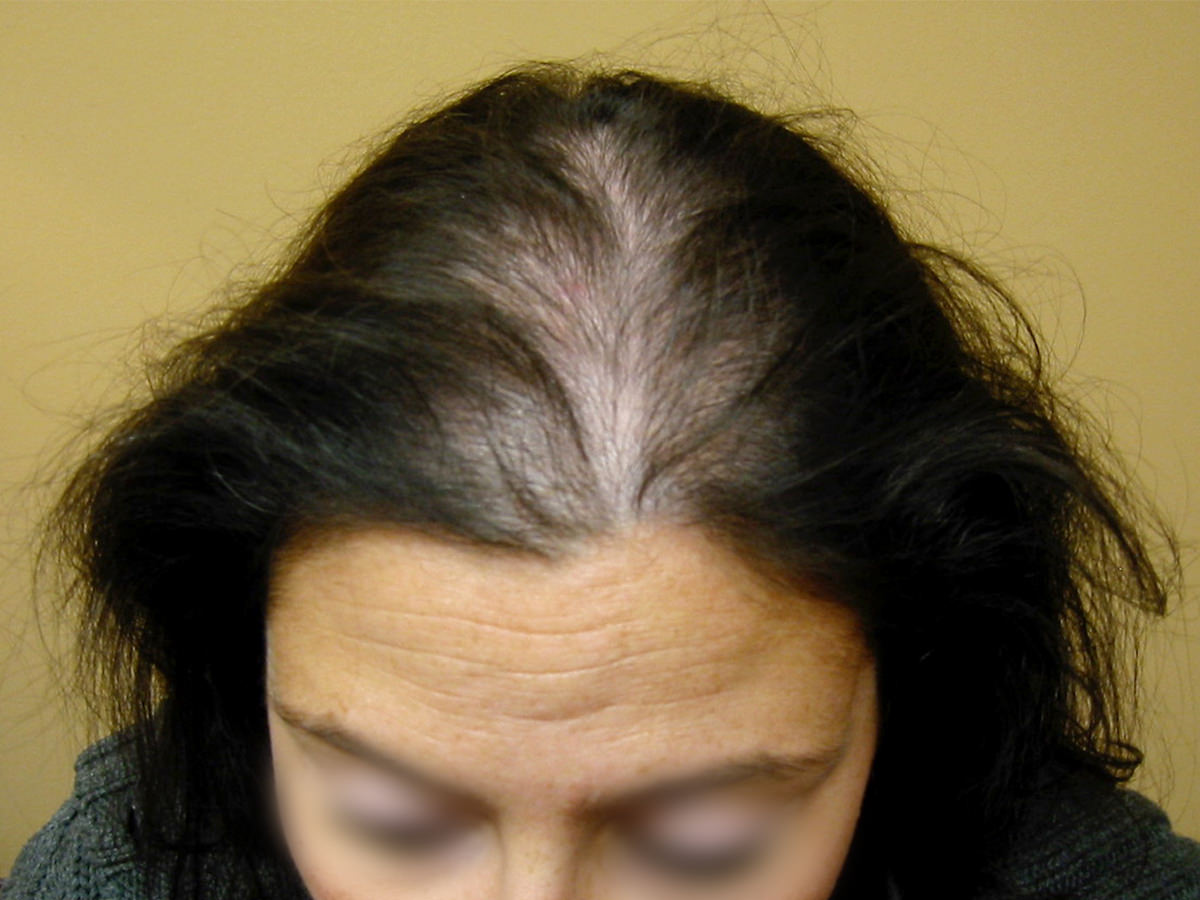
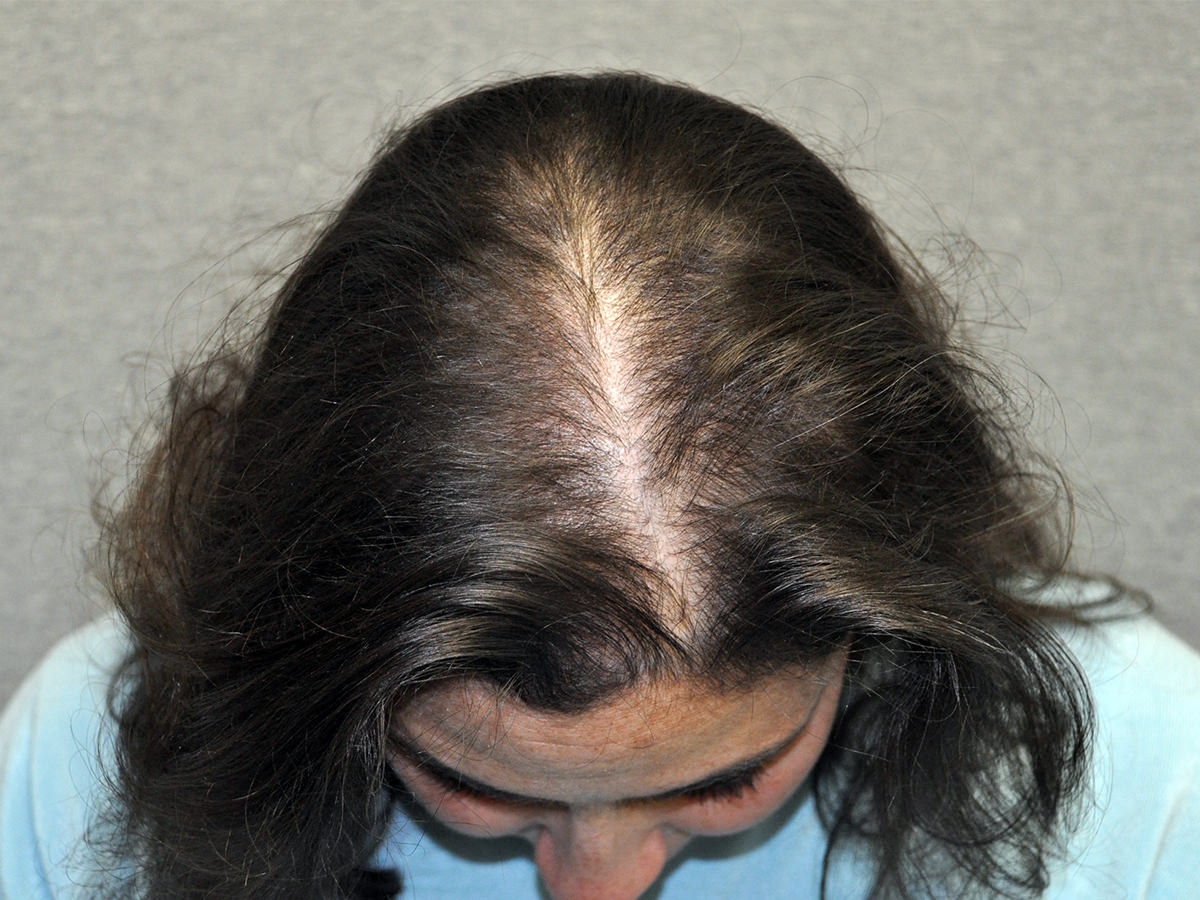
39 year old woman 1 year post 1800 follicular units via FUT.
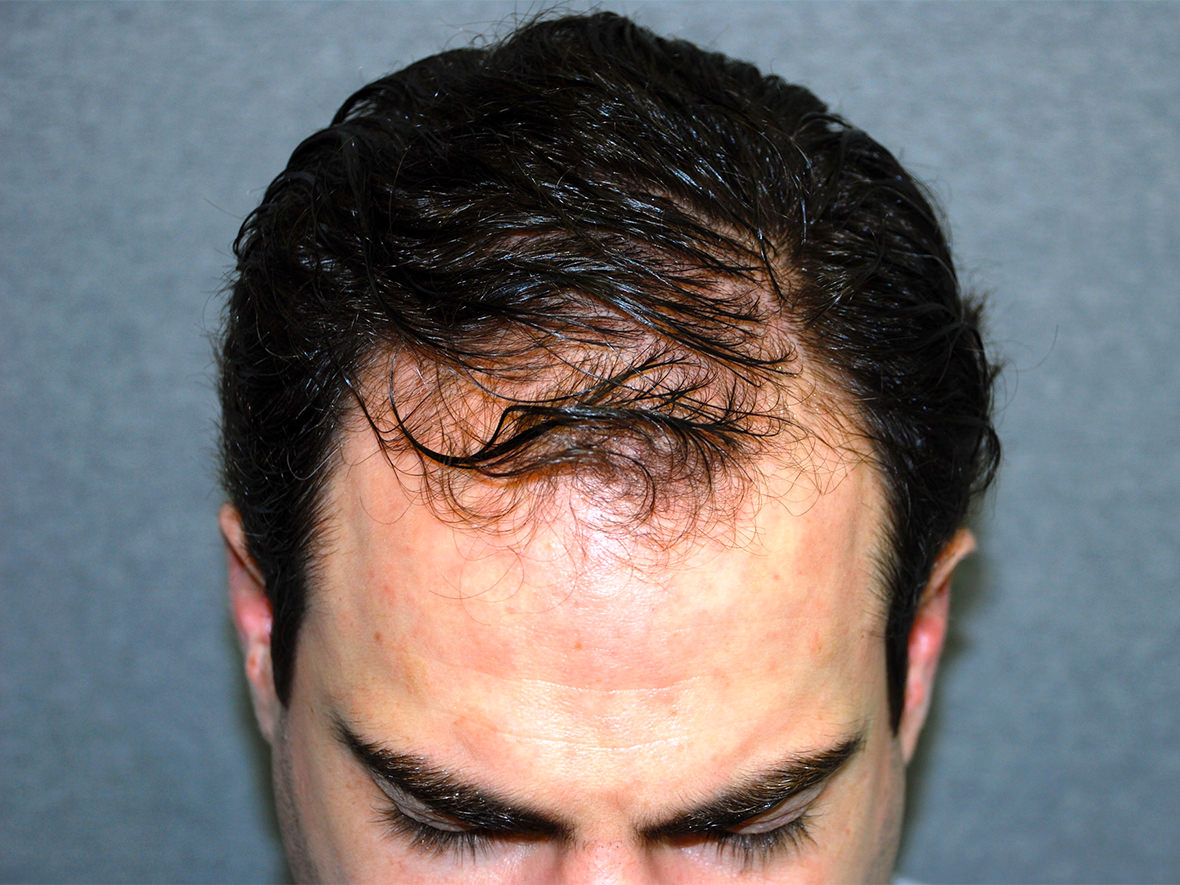
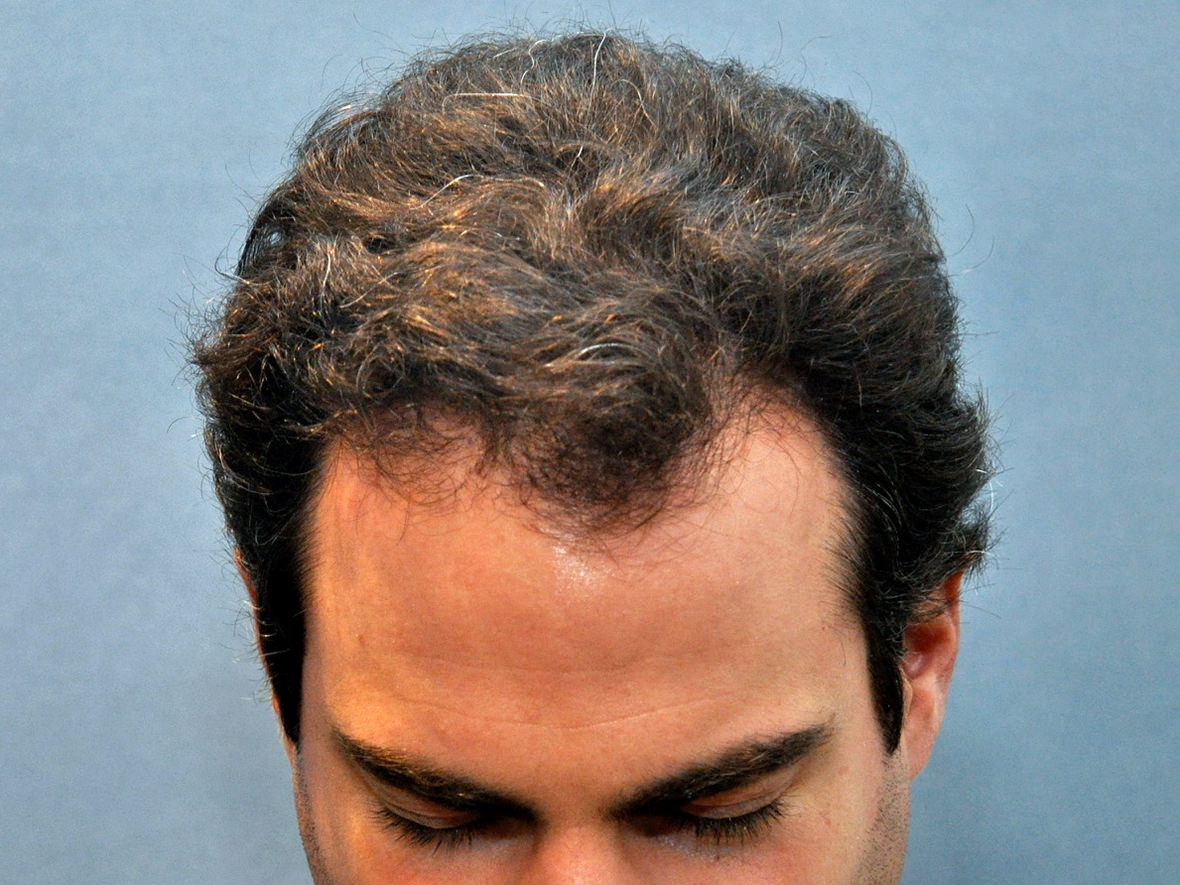
36-year-old male shown approximately one year following 2100 follicular units obtained
FAQ
Is FUT hair transplant painful?
FUT hair transplant surgery is generally associated with minimal discomfort. We perform these procedures using local anesthesia in a comfortable, fully accredited outpatient clinic. To further reduce any discomfort, we provide pain medication and light sedatives. Additionally, we employ advanced techniques when giving local anesthesia. During the procedure, patients feel relaxed enough to listen to music, podcasts or watch Netflix.
Is a hair transplant permanent?
Transplantation outcomes are typically permanent. Results are also enduring or permanent in women, although the donor area may be less dependable than in men. Over time, there may be ongoing loss of surrounding non-transplanted hair, prompting some patients to undergo a second procedure to address progressive hair loss in the transplant area.
Is there a lot of downtime after FUT hair transplant?
After an FUT hair transplant, we generally recommend taking at least 2-3 days off, although many patients feel comfortable resuming light activities like answering phone calls, emails, or doing computer work as early as the first day of their recovery. Some patients take calls or work on their phones during the actual procedure! Typically, any swelling and redness diminish within about a week, making the transplant nearly imperceptible. Light exercise and other activities can usually be resumed within 5-7 days, but we advise refraining from strenuous exercise and swimming for 2-3 weeks.
How much does FUT hair transplant cost?
The total cost of an FUT hair transplant session can vary. The number of follicles to be transplanted, any prior procedures, and the characteristics of your current hair will factor into the cost. Unlike certain large commercial clinic chains, at Follicle HT, we don’t bill patients per graft. Instead, we encourage individuals to view the procedure holistically and consider their overall goals and result. Additionally, Follicle HT can help patients explore financing options.
Why choose Follicle HT for your hair transplant procedure?
Ultimately, the decision of where to undergo your hair transplant procedure is a personal one. At Follicle HT, our priority is ensuring total patient satisfaction. We achieve this by offering state-of-the-art follicular unit hair transplant surgery in a comfortable, fully accredited surgical facility where we uphold the highest standards of comfort and safety.
Dr. Korman and Dr. Solomon are dedicated to attaining exceptional results for their patients. They will assist you in determining which specific techniques will achieve the most suitable balance of coverage, density, and naturalness for your hair transplant. Our doctors are personally involved in every aspect of your journey, from the initial consultation to the procedure itself.
At Follicle HT, we believe that modern hair transplantation is liberating. We strive to empower all our patients to look and feel their best by providing a comprehensive range of options.
AM I A CANDIDATE?
Our Hair Loss Self Evaluation tool can help you decide if a hair transplant is the right procedure for you.
START YOUR TRANSFORMATION TODAY
Your hair transplant journey begins with your decision to make a positive change.
At Follicle HT, our philosophy is that modern hair transplantation is a freedom granting procedure. We strive to help all our patients look and feel their very best by having the full range of options available.
Let’s open a discussion, see how we can help!

